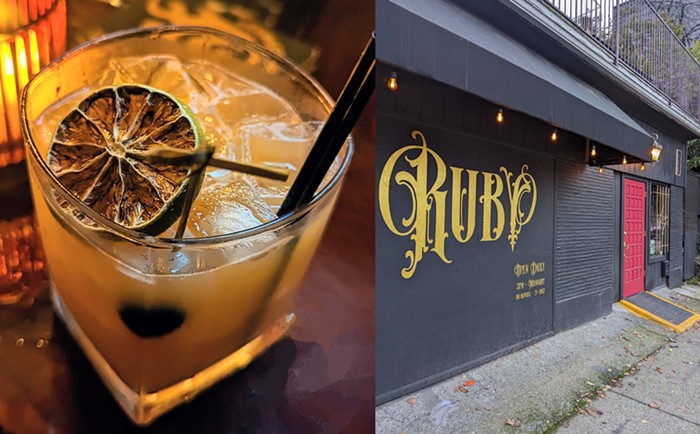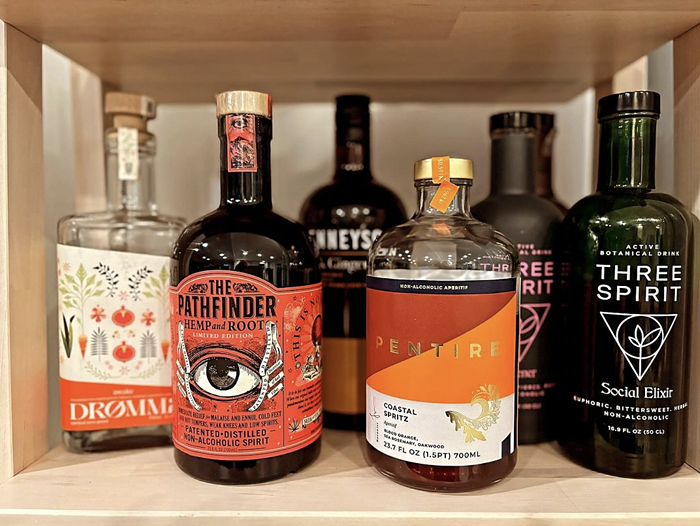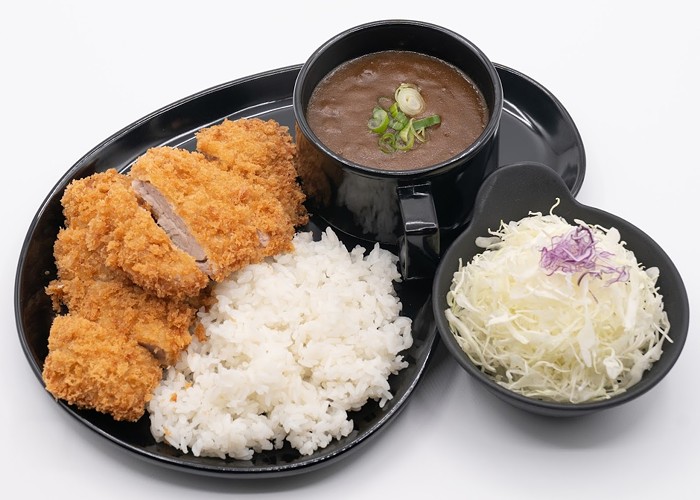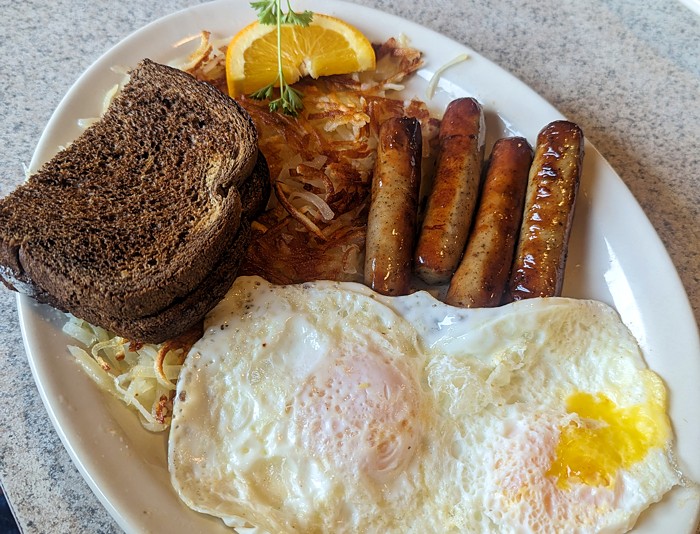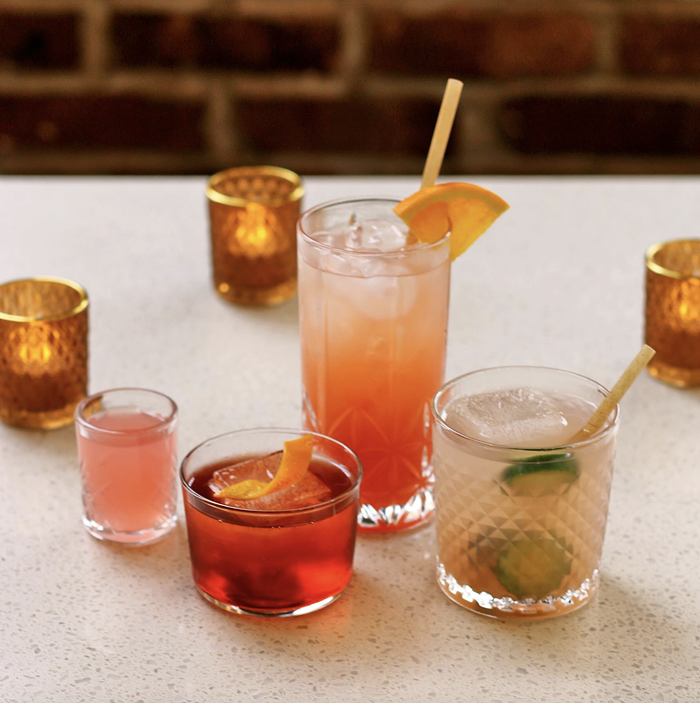Seattle is in the midst of a restaurant boom. New restaurants are opening at a rate that seems faster than our stomachs' ability to sustain them. But quietly toiling away in every neighborhood are unassuming places that also deserve your attention. These stalwarts fuel the city and form its culinary identity.
Close to my heart and my home is Beacon Hill's La Bendicion Tienda Mexicana (2256 Beacon Ave S, 329-1039), whose signs advertise envios de dinero and calling cards. Inside, coolers are filled with bottles of Jarritos and Coke, and towers of queso fresco and tortillas. On weekends, the ladies in the backroom kitchen churn out breathtakingly good tamales, the flavors changing with their whims: chicken in mole negro or a thick red guajillo chili sauce, or pork in salsa verde. They cost less than $2 apiece and come straight out of the steamer, soft and moist. They're usually available between noon and 2 p.m., but timing can be tricky: Get there too early, and they might not be ready. Arrive too late, and they'll be gone.
My pantry would contain little more than popcorn and jars of salsa if it weren't for Big John's PFI (1001 Sixth Ave S, 682-2022). Sandwiched between the International District and Sodo, the brick warehouse holds the ultimate bulk-food section, with bins of flour, grains, legumes, nuts, and every spice imaginable. There are also shelves of tinned sardines, Italian canned tomatoes, dried pasta, tea, mustard, and metal jugs of olive oil. (Also, do yourself a favor and pick up a jar of the best local condiment, Mama Lil's Kick Butt Peppers. Put them on sandwiches, eggs, and tacos; drizzle the oil into soups, tomato sauce, everything.) The best thing about PFI is its glorious, gleaming cheese counter, which runs the length of the store and is packed with cheeses, fresh and aged, including pecorino, English cheddar, bleu, and Spanish goat. There's a half-pound minimum order, but the staff will gladly give you samples of whatever you like and offer suggestions if you're feeling overwhelmed and unsure.
The University District's main drag, the Ave, probably has the city's largest variety of ethnic restaurants. Amid all the hit-or-miss pho, teriyaki, and Thai food, Chili's (5002 University Way NE, 526-9392) stands out—and not just because it serves South Indian cuisine, which you usually have to drive east to Bellevue to find. Their dosas—large, thin crepelike pancakes made from a fermented rice and black lentil batter—are always perfectly toasted, crackly and thin at the edges. I like to get mine stuffed with spicy stewed lamb, with an extra side of their magnificent coconut chutney and a salty yogurt lassi to wash it all down.
I'm ashamed to admit I know very little about Seattle's Polish community. But two things I do know: Their pierogi are slamming and they know how to party. Forget the newest restaurants on Pike/Pine, I'd rather be at PB Kitchen, the weekly, multigenerational dinner party held at the Polish Home Association (1714 18th Ave, 322-3020), which is tucked away on a residential street on Capitol Hill. Every Friday night (and Sunday afternoons from October through May), Polish ladies gather in the kitchen to gossip, cook food from the old country, and serve it up to the people. One dollar buys you membership for one night and the right to enjoy a Polish platter (cabbage rolls, sausage, pierogi, potatoes) and heavenly pork chops—pounded thin, then breaded and fried like schnitzel. Be sure to bring cash, the only form of payment they accept.
From the outside, Greenwood's La Conasupo Market (8532 Greenwood Ave N, 782-0533) appears to be another typical mini-mart selling groceries, sundry items, and Mexican wrestling masks. But in the back, hidden underneath a canopy of piñatas and surrounded by sacks of dried beans, is a tiny restaurant with a poster-board menu. Sunday morning is the time to come, when La Conasupo serves barbacoa—slow-roasted lamb wrapped in maguey leaves. For $5 you get a steaming mountain of meat served over corn tortillas and—even better—a bowl of rich, deeply flavorful consommé made from the drippings. If you're lucky, an older gentleman will show up while you eat and play sweet songs on his acoustic guitar.
There's a very good Chinese restaurant in the front half of Northwest Tofu (1913 S Jackson St, 328-8320) in the Central District, but the real fun is entering through the back alley, past the dumpsters and discarded soy-sauce buckets, and through the noisy, old, wooden screen door. You'll be surprised to find yourself in the middle of a tofu factory surrounded by workers, most of whom are Chinese senior citizens in shower caps. Fresh tofu, which costs just $1 a block, has a texture that's light, creamy, and custardy—in other words, perfect. You can also buy soy milk, fried tofu, and, my favorite, pressed tofu, which is firm and redolent of Chinese five-spice powder.
Pike Place Market is one of the first places people go when they arrive in Seattle—exactly as it should be. It's a myth that the market is just a tourist trap to be avoided by locals. The truth is, you only become a local once you've developed your own relationship with this magical place, when you've wandered its cobblestone alleys and tile hallways and found a few places to call your own. The market has everything: the freshest seafood and produce, wonderful cheeses and ice cream, and some of the best sausages, pickles, and bread. You can eat anything from oysters to Turkish lentil soup, bibimbap to croissants.
One of my most beloved places—in the world, really—is the Athenian (1517 Pike Place, 624-7166) at 5 p.m. No need to bother with the restaurant, just make a beeline for the bar. From 4 to 8 p.m. on weekdays (extending to 9 p.m. on Fridays and Saturdays), you can get a frosty mug of draft beer—so cold, a crust of icy crystals forms on top of the glass—for $4. Squeeze into one of the bar's tiny wooden booths, order the fried calamari, and then stare at the mountains and the water. This is Seattle; there's nothing better. Welcome home. ![]()
